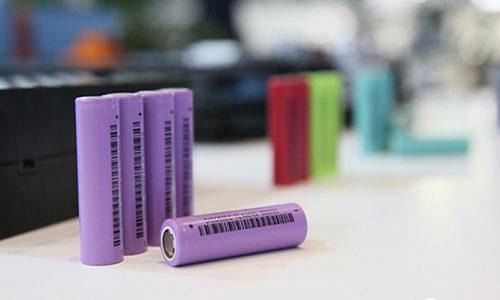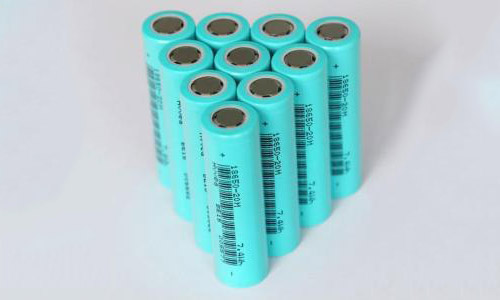Cobalt Free Lithium Batteries-Material Chemical
Dec 16, 2019 Pageview:1515
In the era of ongoing advancement and development, technology is subsequently emerging. Every device used at home, offices, in the military, medical environment, automobile sector, health sector, etc. is running primarily and majorly on batteries. Nobody can deny its vast use and involvement in our daily life. Batteries or cells are convenient to use because there’s no need to fuel around everywhere when you need to operate any device. A few years back, emergency machines such as generators used to run solely on fuel. A decade ago, no one could think of motorbikes, scooters, cars functioning with petrol or diesel. But now generators, bikes, cars can run on batteries. Thanks to technology!
Now with its growing need, rechargeable batteries are flourishing in markets that are high in demand. Now, it becomes vital to understand how are these made? Well, these batteries are made up of lithium-ion(Li-on). Today cobalt appears in most of the lithium-based batteries. When cobalt gets mixed with several other metals, it provides enhanced performance and becomes economical to use. Now, we shall further investigate regarding cobalt-free lithium batteries.
Do lithium batteries need cobalt?
Lithium batteries are made up of manganese, nickel, and several other metals. But cobalt is one of the key ingredients used in lithium batteries. It is used to provide fast-charging, long-lasting battery life. It also serves as cathode material in most of the lithium batteries. This cathode offers a high level of lithium insertion, which contributes to large quantities of energy storage. These are used in cameras, laptops, and mobile phones.
What are the chemical characteristics of cobalt?
Discovered by George Brandt in 1737, cobalt offers high-speed charging batteries. It is essential to understand the reason behind it. The basic answer is its chemical characteristics. Cobalt is a lustrous, hard, silver-white, hard ferromagnetic, brittle element. It has similar physical properties of nickel and iron. Cobalt is a member of group 9 of the periodic table and carries atomic mass 27. It can form many compounds because it stays chemically active. It also remains unaffected by water and becomes stable with the contact of air. One of the essential characteristics of cobalt is that it can also be magnetized. Cobalt is used in electroplating also because of its hardness and its nature of resistance to corrosion.
What are the advantages and limitations of cobalt-free lithium batteries?
The significant difference between lithium batteries and cobalt-free lithium batteries is the energy density they offer. Some examples of cobalt-free lithium batteries are lithium iron phosphate (LFP), lithium titanate (LTO), lithium manganese oxide (LMO), etc. Cobalt free batteries offer low energy density. Cobalt free lithium batteries have limited use, such as in electric vehicles. The massive demand for cobalt has resulted in its scarcity. The prices of cobalt are increasing day by day due to its higher demand and low availability.
Below are some advantages of cobalt-free lithium batteries:
Reduction in the scarcity of cobalt
Since the automobile sector is excessively using cobalt for its utility, an alarming shortage of cobalt is arising. If cobalt-free lithium batteries come into markets, then we can shift its service to various other sectors also. Such as health care and the medical industry. Around 50% of cobalt produced in the entire world is put for battery manufacturing. Technology has always been our savior. While considering the threatening availability of cobalt, technology can save us. For example, Tesla and Panasonic are coming up with the batteries that contain no or less cobalt.
Reduction prices of cobalt
With the robust demand for cobalt batteries, the cost of cobalt is sky touching. If cobalt-free batteries come into markets, then the price of cobalt can be controlled.
Improved mining conditions
Mining conditions of cobalt will improve dramatically if excessive use cobalt could stop.
Low cost of cobalt-free batteries
Batteries with cobalt have high prices because their demand is also high. Whereas cobalt-free batteries have low price structure.
Listed below are some disadvantages of cobalt-free batteries:
Low energy density
Since cobalt helps in enhancing the performance of batteries, cobalt-free batteries will provide low energy in any device. Which can result in the depletion of the device at a very early age. The efficiency of the equipment will decrease if the battery will produce low energy frequently.
Low charging speed
Cobalt helps batteries to get charged much faster. Using cobalt-free batteries will result in charging the device now and then.
Not available easily
There is a shortage of cobalt-free batteries in the market. Manufacturers of batteries are not able to produce cobalt-free batteries due to their scarcity.
Chances of explosion
With cobalt, several other metals get mixed in batteries such as iron, nickel, and manganese. If you heat all these metals together, then there are possibilities of an explosion.
In all, before deciding what to take in use batteries with cobalt or cobalt-free batteries, it is necessary to explore the advantages and disadvantages of both. The above-listed points and information show the chemical properties of cobalt and the need for cobalt in lithium-based batteries. They also reflect the use of cobalt and what harm it is creating to the environment. Cobalt batteries are high in price. In contrast, cobalt-free cells tend to have low prices, which is a great advantage to use such batteries. With the extensive use of cobalt in batteries, there are chances that one-day availability of cobalt will shrink. Several attempts are going on in the entire world, which offers alternatives to cobalt-free cells.
- Prev Article: Damaged Lithium Ion Battery-Solution And Identification
- Next Article: Cobalt in Lithium Batteries
Leave Message
Hottest Categories
-
Hottest Industry News
-
Latest Industry News












